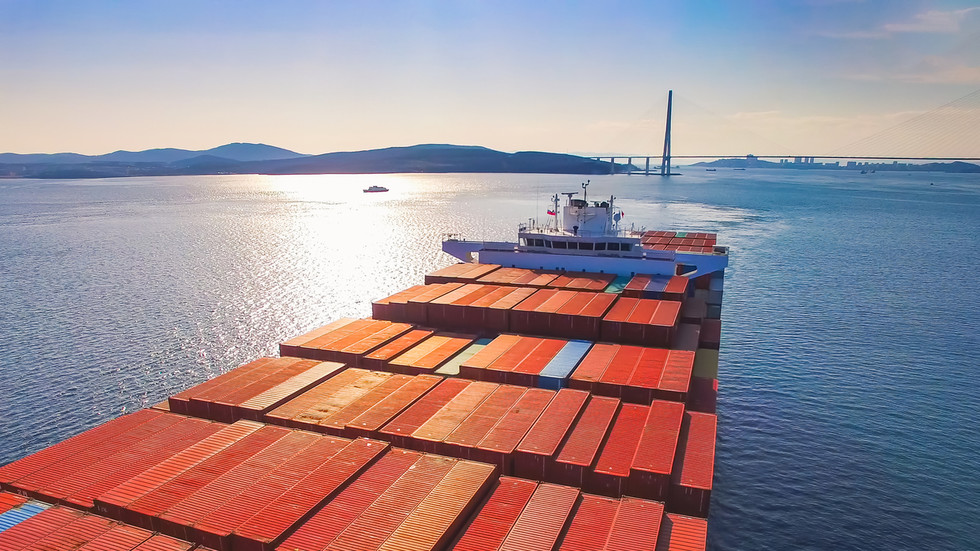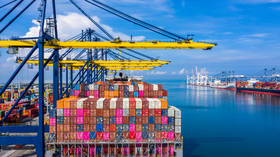
Turnover in some sectors is up more than 30%, according to the Foreign Ministry

© Getty Images / Victoria Koltsova
Russia’s trade turnover with neutral and ‘friendly’ countries, defined as those that have not sanctioned Moscow over the Ukraine conflict, has surged over the past year, Foreign Ministry official Dmitry Birichevsky said on Tuesday.
According to the diplomat, who heads the ministry’s department for economic cooperation, while imports from the EU and other Western states have declined, Russia’s trade with other markets has been on the rise and in some cases is headed for historic highs.
“In general, we have an absolute plus in trade turnover with friendly countries. With neutral countries that have not taken unfriendly actions against Russia, we have growth in foreign trade in some areas of up to 32%,” Birichevsky stated.
“The trends, particularly in exports to friendly nations, show that we will reach new records with each of these countries,” he added, stressing that Russia is adapting to Western restrictions and is reorienting to markets “where we are not threatened with sanctions.”
Birichevsky insisted that sanctions have had a positive effect as they have allowed Russia to diversify its range of trade partners and “escape dependence on those countries that kept us on the hook.”

“We need to treat sanctions with caution, but at the same time not forget about our advantages. Since we have been disconnected from SWIFT, [Western states] are unable to track all of our trade, and there are mechanisms that allow us to bypass restrictions,” the Foreign Ministry official added.
Restrictions imposed by the US and its allies over the past 20 months have limited Moscow’s access to numerous markets and have prompted an exodus of Western firms from Russia. However, Russian businesses are diversifying suppliers and reorienting supply chains to support the economy.
According to a survey by the Russian Union of Industrialists and Entrepreneurs (RSPP), more than 70% of Russian companies have found alternative suppliers of raw materials, services, and software on the domestic market over the past year. Roughly half have found new suppliers for equipment and components from ‘friendly’ jurisdictions abroad.
For more stories on economy & finance visit RT’s business section




